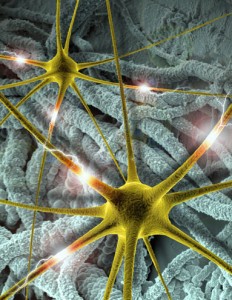Learning Disability Evaluation
A LEARNING DISABILITY EVALUATION seeks to identify the presence of a cognitive deficit or “disability” that has a detrimental impact on a student’s ability to learn and attain a level of academic achievement that is equal to his/her intellectual potential or “intelligence”. However, this evaluation is limited in scope and does not involve the in-depth and comprehensive study characteristic of a Neuropsychological Assessment. Consequently, it provides more limited information regarding the “root” causes for the learning difficulties or the interactive effects that various cognitive deficits or “inefficiencies” may have on the students’ overall cognitive functioning. This evaluation may not be sufficient or appropriate if previous educational evaluations have already been conducted, and educational interventions, remedial programs, or accommodations have been implemented with little beneficial impact on the students’ academic performance. In these cases, a comprehensive Neuropsychological Assessment would be recommended.

A Learning Disability Evaluation includes a clinical interview, careful review of school records, consultation with teachers or other school representatives, and the administration of a measure of intellectual potential (WISC-V, WAIS-IV), academic achievement (WIAT-III, WJ-IV), attention and concentration (CPT-II, WCST), visual functioning (RCFT, TVPS, VMI) and/or auditory functioning (SCAN-3 Children or Adult Version). This evaluation would suffice for most students’ who are believed to be impacted by a Specific Learning Disorder such as dyslexia, or an Attention Disorder Hyperactivity Disorder (ADHD) without any other complicating factors. Oftentimes, students who have already been previously diagnosed with a learning disability may opt to do this evaluation merely to establish their eligibility for services and/or school accommodations under ADA or IDEA regulations such as additional time during standardized entrance examination (SAT, GMAT, GRE, MCAT), use of a separate room or noise-cancelling device, use of visual aids or calculators, provision of paper-and-pencil rather than computerized version of a test, or evaluation through multiple-choice rather than composition.
Search This Site:
Services Menu:
Locations:

Optimal Minds Neuropsychology
1399 Ygnacio Valley Rd Ste 3
Walnut Creek, CA 94598
Phone: (925) 389-6723
Fax: (925) 320-7275
Optimal Minds Neuropsychology
95 Montgomery Drive, Suite 112
Santa Rosa, CA 95404
Phone: (707) 522-0202
Fax: (925) 320-7275
